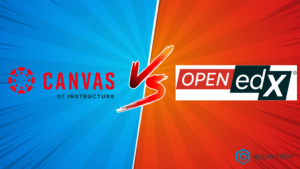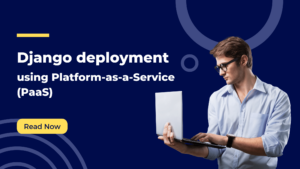In 2024, as educational institutions and organizations grapple with evolving digital learning landscapes, the need for effective Learning Management Systems is paramount. While there are many popular platforms, like Canvas, the need for alternatives has become increasingly apparent as more industries begin to see the value of implementing LMS in their organizations. Many are on the lookout for LMS solutions that not only meet their specific budget constraints and scalability requirements but also provide enhanced features to address contemporary educational challenges.
This article explores a variety of Canvas LMS alternatives, each offering unique capabilities—from robust analytics to tailored content creation—catering to the diverse educational and operational needs of various organizations. Dive in to discover platforms that promise to transform your learning and teaching experiences in alignment with your distinct goals.
Key Takeaways
- Features: When selecting an LMS, focus on features that match your educational objectives and user requirements. Customizable and relevant functionalities can significantly enhance the learning experience.
- Analytics & Reporting: Strong analytics and reporting tools offer insights into learner progress and the effectiveness of courses, enabling informed decisions to improve educational results.
- Course Management: Choose an LMS that provides easy content creation, organization, and distribution, which enables an engaging and accessible learning environment.
- Integration: Smooth integration improves the functionality, allowing for a more unified and efficient educational ecosystem.
- Pricing: An affordable LMS should fit your budget without sacrificing important features and support is crucial for a long-term investment.
LMS Platform | Features | Analytics & Reporting | Course Management | Integration | Pricing |
Appsembler | 5/5 | 5/5 | 5/5 | 4/5 | |
Blackboard | 3/5 | 4/5 | 3/5 | 4/5 | |
Open edX | Open Source | Open Source | Open Source | Open Source | |
Absorb | 3/5 | 5/5 | 4/5 | 4/5 | |
Moodle | 3/5 | 3/5 | 4/5 | 4/5 | $120-1660 per mo |
Litmos | 3/5 | 4/5 | 3.5/5 | 3/5 |
Table of contents
What Is Canvas?

Rating: 4.4/5 (G2)
Canvas LMS is a prominent open-source learning management system widely recognized in higher education. Its user-friendly interface provides various tools and features that facilitate interactive learning and teaching experiences.
The platform’s adaptability allows it to meet diverse educational needs, making it a go-to choice for institutions seeking a robust, scalable LMS solution. While Canvas enjoys popularity, especially in higher education, the evolving demands of digital learning have given rise to several alternatives, each offering unique functionalities to cater to varying educational requirements.
Canvas: Key Features
Canvas LMS stands out for its features that enhance teaching and learning experiences. Here are some of the main features and benefits it offers.
- Free-for-Teacher Plan: This plan offers educators an economical way to access Canvas’s core functionalities. It suits individual teachers or small groups and provides a robust platform without financial strain, making quality education tools more accessible.
- SpeedGrader: SpeedGrader transforms the assignment evaluation process by making grading more efficient. It saves time for educators and provides prompt, detailed feedback to students, improving the learning experience and academic outcomes.
- 99% Uptime (Paid Plan): Featured in the paid plan, this aspect ensures nearly uninterrupted access. Such reliability is important for institutions where continuous course availability is necessary to maintain the flow of education and administrative tasks without hindrance.
- Mobile App for Administrators and Students: The Canvas mobile app bridges the gap between desktop and mobile access. It ensures students and administrators remain connected to their educational resources and management tools, promoting a flexible and responsive educational environment.
Pros & Cons of Using Canvas
Canvas LMS supports various pedagogical approaches, including blended and flipped classrooms, and is widely adopted due to its ease of use, flexibility, and comprehensive set of features.
Pros:
- Designed for Students: Canvas is tailored for student use, creating an intuitive and engaging learning environment that supports academic success.
- Mobile App: The app provides administrators and students access to the platform anytime, anywhere, enhancing flexibility and continuous learning opportunities.
- Organization: All course materials are centralized in one location, simplifying access and management for educators and students.
Cons:
- Limited Customizations: While Canvas offers some customization, it doesn’t match the extensive flexibility of platforms like Open Edx, which may limit creative course design options.
- Set Up Tutorials: The absence of in-platform video tutorials for course setup in Canvas means users often rely on community-hosted resource documents, which can add to the learning curve.
- Navigation: Some users, as noted on G2, find the platform’s navigation to be clunky, which could potentially hinder user experience and efficiency.
Considerations for Canvas LMS Alternatives
When exploring Canvas LMS alternatives, it’s crucial to evaluate key aspects such as Analytics and Reporting, Course Management, Integration, and Pricing. Each of these features plays a significant role in determining the effectiveness and suitability of an LMS for your needs.
Analytics and Reporting
In-depth analytics and reporting significantly enhance LMS usability by providing insights into learning effectiveness. These learning analytics help educators identify what is and is not working for students, leading to data-driven decisions that improve course content and delivery. It also fosters a more personalized and effective learning environment for students.
Course Management
Effective course management is pivotal to the success of any Learning Management System (LMS). It allows educators and administrators to efficiently organize, evaluate, and modify courses. This capability enables tracking user progress, selecting appropriate content, and determining the learning paths for students. Robust course management is crucial as it directly impacts the quality and effectiveness of the educational experience provided.
Integration
LMS integration is essential for creating a centralized hub for all learner activities. Effective integrations ensure your LMS works well with your current tech stack, preventing the need to direct learners to multiple platforms. This streamlined approach is important as it simplifies the learning process, keeping focus and efficiency at the forefront of the educational experience.
Pricing
Pricing is critical in selecting a Learning Management System (LMS), particularly for organizations planning to scale. It’s not just about the upfront costs; consider the long-term financial implications of feature availability. An LMS lacking essential features might decrease productivity, necessitating additional hires or alternative solutions, thereby increasing overall costs. Therefore, a comprehensive pricing evaluation against the features’ value is essential, ensuring that the chosen LMS aligns with current needs and future growth.
6 Canvas LMS Alternatives
Diving into the world of LMS, we’re about to unveil six Canvas LMS alternatives, each bringing their unique features and advantages to the table.
1. Appsembler Tahoe

Rating: 4.9/5 (G2)
Key Features:
- Worry-free Hosting: Appsembler guarantees a 99% uptime, ensuring that learners and educators have consistent and reliable access to their courses. This fully managed hosting solution takes the stress out of maintaining an online learning environment, allowing institutions to focus on delivering quality education.
- Multiple Student Paths: Appsembler enables administrators to create multiple student paths, tailoring the learning experience to meet diverse educational needs and goals. This flexibility allows for a more personalized approach, ensuring that each student can navigate courses in a way that best suits their learning style and objectives.
- OpenAPI Access: With OpenAPI access, Appsembler stands out in integrating a wide range of tools and systems. This feature offers extensive customization options and includes the unique service of building integrations for any tools not already in your tech stack, ensuring seamless connectivity and functionality.
Appsembler Tahoe stands out as a unique LMS designed for learners who seek a different educational approach. Built on the Open edX platform, it eliminates self-hosting challenges, providing a streamlined experience. Appsembler caters to a diverse learner base, offering engaging content and hands-on learning experiences, allowing students to learn at their own pace.
A notable feature of Appsembler Tahoe is its analytics capabilities through Figures. This functionality provides in-depth insights into learner engagement, aiding educators in making informed decisions. The platform allows for complete course management and customization, simplifying the course creation process.
Appsembler offers the ability to present content in a variety of methods meant to accommodate different learning styles. Its practical approach to learning enhances engagement and knowledge retention. Progressing independently is especially beneficial for adult learners and professionals, balancing education with other commitments.
Appsembler is suitable for various industries, offering a versatile solution for diverse educational and training needs, from higher education to corporate training and skill development.
Appsembler Tahoe’s pricing structure caters to a broad spectrum of budgetary requirements, offering multiple plans for different organizational needs. Their Starter plan begins at $520 per month, providing essential tools for online course creation and delivery. Whatever plan you use, Appsembler Tahoe ensures that organizations can select an option that aligns both with their financial constraints and educational goals. For detailed information on each plan’s offerings, it’s advisable to refer to Appsembler’s pricing page.
2. Blackboard Learn

Rating: 3.9/5 (G2)
Key Features:
- Mobile App: Blackboard Learn’s mobile app is a significant asset, allowing users and administrators to access courses and manage content on the go. This feature ensures that learning and administrative tasks can be performed anytime, anywhere, enhancing the overall accessibility and convenience of the platform.
- Course-wide Announcements: Blackboard Learn’s course-wide announcement feature allows for efficient communication, ensuring that important updates and information are promptly shared with all course participants.
- Custom Roles: The ability to set custom roles for students, instructors, assistants, and others in Blackboard Learn offers a high level of customization and control.
Blackboard Learn is a well-recognized name in both secondary and higher education, and it is also extending its capabilities to corporate learning. It also caters to corporate learning environments, offering a comprehensive suite of tools for diverse educational needs. Blackboard enhances learning experiences by allowing administrators and users to monitor progress, fostering learner autonomy, and increasing engagement. The platform has a range of pre-built Student Information System (SIS) and Learning Tools Interoperability (LTI) integrations, streamlining the educational process and enhancing the overall user experience.
Blackboard Learn begins at approximately $9,500 per year. While it does not offer a permanently free version, prospective users can explore its features through a 30-day free trial. Contacting Blackboard’s sales team is recommended for detailed pricing tailored to specific needs. This approach allows organizations to receive customized quotes that align with their unique requirements and scale.
3. Open edX

Rating: 4/5 (G2)
Key Features:
Open edX is renowned for its extensive feature set, offering a range of capabilities that cater to diverse learning environments. Here are a few key features:
- Open Source: Open edX, as an open-source platform, offers unparalleled customization and control, allowing institutions to tailor the learning experience to their specific needs. This flexibility fosters innovation and ensures that the platform can evolve with the changing educational landscape.
- Flexibility: Open edX distinguishes itself in flexibility, particularly by using Xblocks. Xblocks are modular components that enable educators to create unique and interactive course content, enhancing the learning experience with various multimedia and interactive tools.
- Integrations: A standout feature of Open edX is its robust integration capabilities, thanks to Learning Tools Interoperability (LTI). LTI allows Open edX to seamlessly integrate with virtually any tool or system needed, ensuring a cohesive and comprehensive learning environment incorporating a wide range of resources and applications.
Open edX is a leading LMS platform celebrated for its open-source nature. This attribute brings significant advantages such as flexibility in customization, scalability to match growing educational needs, and a wide range of integration possibilities. The platform is bolstered by an active community, constantly working to enhance its features and share valuable insights, ensuring it stays at the forefront of educational technology.
Using Open edX directly involves self-hosting, which means managing your servers and infrastructure. This approach requires internal tech support and can lead to additional challenges like potential downtime and ongoing server costs, which are important considerations for any organization.
While Open edX is a free, open-source platform, it’s crucial to understand the broader financial implications of self-hosting. The costs associated with maintaining servers, managing uptime, and providing technical support can add up, potentially making it more expensive than hosted LMS alternatives.
4. Absorb

Rating: 4.7/5 (G2)
Key Features:
- Customizable Analytics Dashboards: Absorb LMS offers customizable analytics dashboards, providing users with powerful tools for tracking and analyzing learning outcomes. This feature enhances LMS administration by offering insights into user engagement and course effectiveness, aiding in informed decision-making.
- Content Library: The platform boasts extensive LMS content libraries featuring thousands of pre-built courses across various subjects. This vast repository of ready-to-use content saves time and resources, allowing organizations to deploy training quickly without requiring extensive course development.
- ADP Connectors and Native Integrations: Absorb LMS integrates seamlessly with various systems through ADP connectors and native integrations. These LMS integrations facilitate a streamlined workflow, enabling efficient data synchronization and enhancing the overall user experience by connecting the LMS with other essential business tools.
Absorb LMS stands out with its smart administration features, automating the tedious aspects of course management and freeing up valuable time for educators and administrators. These features streamline course administration and allow for easy sharing of reports with relevant parties, regardless of their use of the LMS. Additionally, Absorb provides observational checklists, offering administrators a quick overview of each user’s training progress. Designed for universal accessibility, Absorb ensures a seamless experience across all devices, including a fully functional mobile app.
Regarding pricing, Absorb LMS offers a range of models tailored to meet diverse needs. Interested parties can discover the most suitable pricing option through consultation with their team, as detailed pricing information is not publicly available without a direct inquiry. Furthermore, Absorb LMS provides a free trial, allowing potential users to experience its features firsthand before committing.
5. Moodle

Rating: 4.1/5 (G2)
Key Features:
- Open-source platform: Moodle’s open-source nature allows for extensive customization, enabling users to tailor the platform to their educational needs. While this offers flexibility, it’s important to note that platforms like Appsembler provide a more streamlined and user-friendly customization experience.
- Competency frameworks: Moodle incorporates competency frameworks that allow administrators to map out and track specific competencies within their educational programs. This feature is particularly beneficial for administrators seeking to align educational content with desired outcomes, though it requires a level of engagement and setup that platforms like Appsembler simplify.
- Workshops: The workshop activity feature in Moodle facilitates peer assessment and collaborative learning, allowing students to review and assess each other’s work. This interactive approach fosters a deeper understanding and engagement among students, but it’s worth mentioning that similar capabilities can be found in more intuitive forms in alternatives like Appsembler.
Moodle, short for “Modular Object-Oriented Dynamic Learning Environment,” is a flexible LMS platform.
Its flexibility allows for a personalized learning experience, adapting to various educational and training contexts. Moodle’s strength lies in its customizable data reporting and analytics, enabling you to focus on the course statistics that are most relevant to your objectives. The platform’s versatility is further amplified through certified integrations, seamlessly incorporating your existing tech stack and expanding its capabilities.
Moodle operates on a unique pricing model. While the software is accessible as an open-source platform, costs are incurred depending on your hosting and support choices. Organizations can opt for self-hosting, which involves managing the software on their servers, or choose a Moodle Partner for hosting and additional services.
6. Litmos

Rating: 4.2/5 (G2)
Key Features:
- Built-in Content Authoring: Litmos enables users to create dynamic SCORM content, catering to novice trainers and expert instructional designers. This feature simplifies developing engaging and interactive courses, enhancing the learning experience and ensuring content relevance.
- Quick Deployment and Integration Options: Litmos offers rapid deployment and seamless integration with various systems. This means organizations can swiftly implement and connect the LMS with existing tools, streamlining workflows and reducing setup time.
- Gamification and Leaderboards: The platform incorporates gamification elements like achievements, points, and badges, fostering a competitive and engaging learning environment. Leaderboards stimulate friendly competition, motivating learners to complete more courses and actively participate, enhancing overall engagement and learning outcomes.
Litmos was explicitly designed to enhance employee training programs. It optimizes the learning experience through various content delivery methods, ensuring flexibility and adaptability. Custom branding options allow for a personalized learning environment, while flexible access caters to diverse learning preferences and schedules.
However, Litmos offers limited integrations, which could impact the success of a Learning Management System (LMS). Limited integrations may restrict the seamless flow of data and functionality between Litmos and other essential business tools, potentially complicating the user experience and system efficiency.
Litmos provides three distinct plans, but their pricing lacks transparency. Interested parties must consult a sales team to obtain specific pricing details, which may add an extra step for organizations seeking quick and clear budgetary information.
Choosing the Best Canvas Alternative for You
Appsembler stands out as the foremost choice when selecting Canvas LMS alternatives. Its robust features include reliable hosting with a 99% uptime guarantee, enhancing peace of mind. Appsembler’s multiple student paths allow personalized learning experiences, meeting individual learners’ needs. The platform’s OpenAPI access enables extensive integrations, making it versatile for various educational settings.
Appsembler’s distinction lies in its commitment to customer support and exceptional white-glove migration services. Choosing Appsembler means partnering with a team focused on smooth transitions and ongoing support. This commitment ensures educational institutions and corporate trainers can confidently migrate and use this platform, supported every step of the way.
Appsembler’s blend of advanced features and a customer-centric approach makes it an ideal solution for effective and efficient learning management. It is a top-tier choice for educational and training needs, combining advanced functionality with a focus on user support.
Scale Your LMS With Appsembler
Appsembler is a leading Canvas LMS alternative with an unparalleled commitment to customer support and success. For those seeking an advanced, user-friendly LMS solution, Appsembler is a compelling choice. Interested in seeing how Appsembler can transform your LMS experience? Request a demo to witness its capabilities firsthand.



